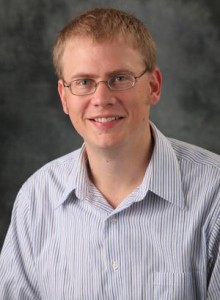
In the Sunday lectionary, it is the year of Mark, although, because Mark has no resurrection appearances in his Gospel, we have not heard it read much during the Easter season!
Mark’s Gospel is about the Kingdom of God, and in chapter four Mark specifically begins to expose what exactly this kingdom is like. The string of parables in chapter four ask, and then begin to answer, one specific question: in whom does the kingdom best take root?
The parable of the sower (4:1-9) is often interpreted in a way not tenable in the ancient world. Our modern world of combines, fertilizer, massive irrigation and land-leveling equipment can make almost any soil farmable (arable). In the ancient agrarian context, such was not the case. The shocking dynamic of the parable is that soil has no choice in what type of soil it is. The sower is indiscriminate, wasteful, or perhaps optimistic; soil types are entrenched in their own ways.
While the initial encounter with the parable may be troubling in its idea that soil cannot change, the next brief episode (4:10-11) might start to provide comfort: at least the disciples are cuddled up to Jesus and on the inside so they can understand what is going on. For those outside, however, the word is even more troubling: Jesus speaks in parables so that those who are outside might not understand and be forgiven. Mark here appropriates Isaiah 6 in order to confirm what the parable itself initially indicated: soil is soil, and has no ability to change what it is. Arriving at 4:12, however, the shock increases: Jesus chastises the disciples: “Do you not understand this parable? Then how will you understand all the parables?” At this point, the reader should be even more confused. The insider/outsider schema was palatable as long as we can sit in the comfort of knowing who is inside and who is not. This last buttress of the reader’s epistemological edifice Mark demolishes with the disciples’ lack of understanding. If they are not the insiders, then who is?
Following in vv. 21-32 are a series of strange little parables that continue the exposition of the Kingdom of God. 4:26-29, for example, highlights an aspect of the Kingdom of God that fits with the parable of the sower and its aftermath in the narrative just explored. The Kingdom of God is like someone who scatters seed and goes to bed, then wakes up shocked at the growth that has occurred without human cultivation. According to this parable, the Kingdom of God surprises. It does its own thing. Mark presents the Kingdom of God as one that relies little, if at all, on human action. A second parable about a mustard seed is similar. The kingdom of God, it claims, is so small and insignificant that it might be missed or overlooked. Once full grown, however, its true significance becomes known.
The parable of the sower plants a question: who is the good soil? The disciples, it seems are not. The subsequent parables further erode human volition and efficacy in instigating the kingdom of God. This question lingers in the mind when one reaches the final episode of the chapter, a miracle narrative in which Jesus calms a violent storm. Jesus prompts a trip to the other side, and then quickly decides to take a nap. A windstorm arises; the disciples are terrified. Rousing Jesus results in his calming of the storm. Jesus then berates them for a lack of faith. Most translations obfuscate the disciples’ response to this entire episode in v. 41. The Greek most literally says, “And they feared a great fear.” Most translations are similar to the New American Bible: “they were filled with great awe.” Awe does not cut it in this context. Fear is intended, and without it, the reader misses the point. Mark here dashes any hope that the disciples might be on special footing. The initial hunch is confirmed: the disciples, those on the supposed inside, are hopelessly ignorant.
If following Mark’s threads throughout this chapter leaves one uneasy and frustrated, then we are in the exact place Mark would intend. Mark struggles, as did many segments of early Judaism and Christianity, to understand Isaiah 6. How, precisely, are we to understand God’s message to Isaiah to speak in such a way that the people will not turn and be healed? Mark uses this text to turn the tables on those who think they are insiders, who think they are the ones ushering in God’s kingdom. The “good” news for them is that this is not their kingdom, it’s God’s. Those of us entrenched in Roman Catholicism ought not to try to remove the shock that Mark intends here. Are our ears attuned to the ways in which the Kingdom is moving?
(Micah Kiel is an assistant professor of theology at St. Ambrose University in Davenport.)







